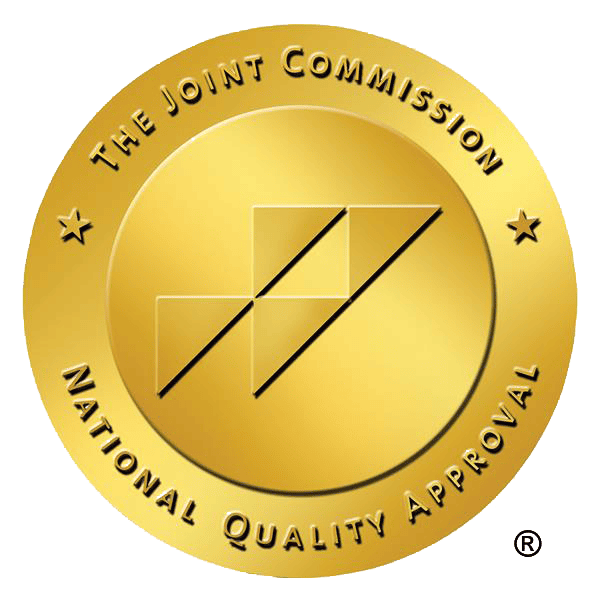Dual diagnosis refers to the presence of both a mental health disorder and a substance use disorder in an individual. This combination complicates treatment as both issues are often interdependent. Understanding the signs and symptoms of dual diagnosis is crucial for early intervention. Untreated, dual diagnosis can lead to severe health and social consequences. In this article, we’ll examine the common signs and explore why early diagnosis is vital for effective treatment.
What is Dual Diagnosis?
Dual diagnosis, also known as co-occurring disorders, happens when someone has both a mental health condition and a substance use disorder. These issues typically interact, with one often influencing the other. For example, a person may abuse alcohol to cope with anxiety, while alcohol use worsens the anxiety in the long run. If left untreated, both conditions usually worsen, making recovery more difficult.
Recognizing Dual Diagnosis Symptoms
Identifying dual diagnosis can be tricky since the symptoms of mental health disorders and substance abuse overlap. However, some clear signs help distinguish dual diagnosis from isolated conditions:
- Erratic Behavior: Individuals with dual diagnosis often display unpredictable behavior. They may experience mood swings, act aggressively, or withdraw from social interactions. These behaviors stem from the mental health disorder and the effects of substance abuse, making it hard for the person to maintain control.
- Changes in social circles: A sudden shift in friendships or social isolation is a key indicator. Someone with a dual diagnosis may abandon long-time friends to spend more time with those who enable substance abuse. In some cases, they may withdraw completely from social settings to avoid detection.
- Declining work or school performance: A significant drop in performance at work or school often signals dual diagnosis. Mental health issues combined with substance abuse can lead to problems focusing, memory lapses, and poor decision-making, causing a person’s responsibilities to suffer.
- Self-medication: Many individuals attempt to manage their mental health symptoms by using drugs or alcohol. This behavior, though common, can lead to addiction. Self-medication is a warning sign that professional intervention is necessary.
- Physical symptoms: Physical signs and symptoms of dual diagnosis may include weight loss, lack of sleep, changes in appetite, or poor hygiene. The physical decline often accompanies behavioral changes, making these symptoms more noticeable.
How Mental Health and Substance Abuse Interact
Mental health disorders and substance abuse often feed into each other, creating a vicious cycle. For example, people with depression may use drugs to escape emotional pain. In time, substance abuse deepens depression. Similarly, anxiety sufferers may turn to alcohol to calm their nerves, only to find their anxiety worsens over time. The interaction of these disorders makes treatment more complex, requiring a comprehensive approach.
Both conditions frequently have similar symptoms, such as irritability, trouble sleeping, or lack of energy, making it hard to tell if one issue is driving the other. A proper diagnosis by a trained professional is essential to ensure both conditions receive attention.
Signs of Dual Diagnosis by Mental Health Disorder
The specific symptoms of dual diagnosis vary depending on the mental health disorder involved. Understanding these differences can help in recognizing when someone is dealing with a dual diagnosis:
- Depression and substance abuse: People with depression might turn to drug use or alcohol to cope with their emotional pain. Symptoms of depression, such as persistent sadness and lack of motivation, may worsen with increased substance use.
- Anxiety and substance abuse: Anxiety sufferers may use substances like alcohol or tranquilizers to soothe their nerves. In the long run, this behavior increases dependency and worsens anxiety, especially when the person isn’t using substances.
- Bipolar disorder and substance abuse: During manic phases, people with bipolar disorder often engage in impulsive behavior, including substance abuse. In depressive episodes, they may use substances to manage their low mood, leading to a cycle of dependency.
- PTSD and substance abuse: Individuals with PTSD might use drugs or alcohol to numb emotional distress or block traumatic memories. This type of self-medication only increases the severity of PTSD symptoms over time.
The Importance of Early Intervention
Spotting the signs and symptoms of dual diagnosis early is critical for successful recovery. Without intervention, both mental health issues and substance use disorders can escalate, leading to serious consequences such as overdose, self-harm, or life-threatening health conditions. Early treatment not only improves mental and physical health but also reduces the chances of relapse.
Integrated treatment is the most effective approach for addressing dual diagnosis. This type of treatment addresses both conditions at the same time, ensuring neither is neglected. Without treating both issues, there is a higher likelihood of recurrence.
Treatment Options for Dual Diagnosis
Dual diagnosis treatment requires a comprehensive approach. Some of the most effective methods include:
Integrated Treatment Programs
These programs treat both mental health disorders and substance use disorders simultaneously, ensuring neither condition is overlooked. By integrating care, individuals receive the support needed for both recovery paths.
Cognitive-Behavioral Therapy (CBT)
CBT helps individuals recognize and change negative thinking patterns that contribute to both mental health disorders and substance abuse. This therapy is highly effective for conditions like anxiety, depression, and PTSD.
Medication Management
Medication can be critical in stabilizing mood disorders and controlling withdrawal symptoms. A trained professional ensures that medications are managed properly to avoid interactions that could worsen symptoms.
Support Groups
Peer support plays a significant role in recovery. Groups such as Alcoholics Anonymous (AA) or Narcotics Anonymous (NA) provide emotional support and shared experiences, which are crucial for overcoming dual diagnosis challenges.
The Need for Ongoing Support
Dual diagnosis is a chronic condition, meaning it requires ongoing care even after initial treatment. Long-term support through therapy, medication, and peer groups is essential to maintaining recovery. Regular follow-ups with healthcare professionals help prevent relapses and ensure continued progress.
Without ongoing care, the risk of falling back into old patterns increases. Substance abuse and untreated mental health disorders can quickly undo the progress made in treatment. Therefore, long-term commitment to recovery is key.
Addressing the Signs and Symptoms of Dual Diagnosis: Getting Help
Recognizing the signs of dual diagnosis is the first step toward recovery. From erratic behavior and social withdrawal to physical changes and self-medication, these indicators should not be ignored. Identifying these dual diagnosis symptoms early ensures that both mental health and substance use disorders are treated together, which greatly increases the chances of long-term recovery.
If you or someone you know is experiencing the signs and symptoms of dual diagnosis, don’t wait to seek help. Timely intervention and comprehensive treatment offer the best hope for a successful recovery journey.
Contact The Prairie Recovery Center for comprehensive, compassionate care that addresses both mental health and substance use disorders.









